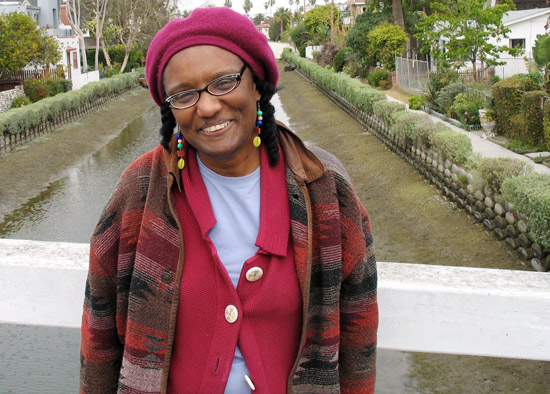If you find yourself wandering in UCLA’s serene Mildred E. Mathias Botanical Garden, you may stumble upon this year’s Jackson Poetry Prize recipient, Harryette Mullen, jotting down verses to her next poetic work.
Poets & Writers Inc., a non-profit organization serving creative writers, recently announced Mullen, a UCLA professor of English and published poet, as the fourth recipient of the prize. The award consists of $50,000 and “honors an American poet of exceptional talent who deserves wider recognition,” according to the organization’s Web site.
Mullen said the news of her selection was completely unexpected.
“You have to write for 20 years before you get recognized,” she said. “It’s something of luck. It feels like winning the lottery without having bought the ticket.”
Mullen’s artistic and literary careers stretch far back ““ from studying literature as a graduate student at the University of California, Santa Cruz, to her great, great grandmother’s ancestors, who were cast in Broadway shows and performed literary readings of Shakespeare. These are findings she came across while tracking down family history for her upcoming book, a work in progress that will be the eighth of her published works.
For Mullen, the inspiration for her writing does not need to descend from lofty subjects, and can be derived from everyday occurrences, especially dreams. She believes everyone is a poet, but the hectic and technology-dominated lifestyles that most people lead prevent them from incorporating poetry into their daily lives.
“The language gives us a way for shifting our perceptions,” Mullen said. “Often a poet is trying to help us see in a slightly different way. Poets cultivate a habit of putting things together, of not thinking in a straight line.”
As a professor at UCLA for 15 years, Mullen has been able to work on creating and critiquing both poetry and literature. She has also successfully shared her knowledge and love of writing with her students. Lydia Kim, a fifth-year arts and English student currently enrolled in Mullen’s creative writing for poetry class, said she appreciates Mullen’s knowledge and help.
“I feel like she has so much to say but holds back to let us discover all the things she already knows. She gives us that room and freedom,” Kim said.
Richard Yarborough, associate professor of English and faculty research associate, described Mullen as a creative writer and emphasized the playfulness and love of language prevalent in her poetry. Yarborough also applauded the professor’s ability to not only create literature, but evaluate it as well, which is something Mullen commented on herself.
“I think I have both a creative and a critical perspective on poetry and literature, and I don’t think that those two things have to be contradictory, although one thing can interfere with the other,” she said.
The Jackson Poetry Prize is not the first time Mullen has been recognized for her work. She has received several awards, among them the United States Artist Fellowship and the Guggenheim Fellowship. Mullen does not, however, believe monetary compensation is the motivation behind a poet’s writing.
“You can’t work for the prize, but its good to know that there is a prize that can represent that poetry is valued,” she said. “The value of poetry is not really in dollars, but the dollars are a symbol of the world that cares about money and forgets about poetry.”
There will be a reading and reception in May at the organization’s headquarters in New York, where Mullen will be presented with the award and her prize.
As for the $50,000 that the prize has allotted Mullen, the professor said she plans on storing it away it for retirement.
